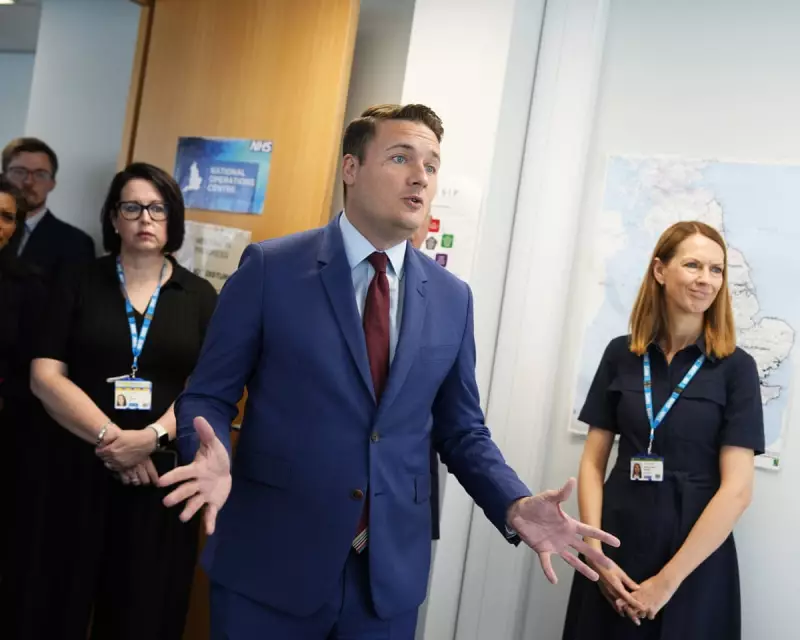
NHS Winter Crisis Intensifies as Doctors Begin Five-Day Strike
Health Secretary Wes Streeting is confronting one of his most significant challenges yet as resident doctors commence a five-day strike starting Friday morning. The timing of this industrial action coincides with what NHS England's CEO Jim Mackey describes as "one of the toughest winters our staff have ever faced", creating a perfect storm for the health service.
Mounting Pressure on NHS Services
The latest NHS figures reveal the scale of the crisis facing the health service. In October alone, 54,000 patients waited more than 12 hours for a bed in emergency departments, representing a nearly 10% increase compared to the same period last year. The elective waiting list has now reached 7.39 million patients, with analysis from the Health Foundation suggesting the government may fall short of its pledge to restore the 18-week elective care standard by the end of this parliament.
Compounding these challenges, an exceptionally virulent flu strain has arrived early, with cases already several times higher than normal. Last month witnessed a alarming 74% week-on-week increase in flu hospitalisations, adding immense pressure to an already strained system.
The Doctor's Dilemma: Pay and Conditions
The British Medical Association's resident doctors committee has organised the strike following a ballot where 90% of doctors voted in favour of industrial action, achieving a 55% turnout. The dispute centres on both working conditions and pay, with doctors highlighting grievances about rotating between different specialist training posts across the country, accumulating debts of up to £100,000, and often working without basic amenities like hot meals or proper rest facilities.
However, the government position has hardened regarding pay demands. Since his appointment, Streeting has already settled generously with doctors, providing a 22.3% pay rise over two years plus an above-inflation average of 5.4% this year, resulting in an average increase of 28.9% across three years. This contrasts sharply with the 3.6% offered to nurses, midwives and physiotherapists.
Despite these improvements, doctors are seeking an additional 29% to restore their pay to pre-2008 financial crisis levels. The dispute involves complex calculations around inflation measures, with TUC General Secretary Paul Nowak noting that real wages across the public sector would be £217 a week higher had they maintained pre-2008 growth rates.
Public Opinion Shifts as Winter Bites
Public support for striking doctors has noticeably shifted since the change of government. Current polling shows 51% of the public oppose the doctors' strike, with only 40% in support. Interestingly, 51% believe doctors should never be permitted to strike, contrasting with attitudes toward nurses where 53% support their right to industrial action.
This changing public sentiment may reflect growing awareness of doctor's remuneration, with beginners earning £38,000 rising to £109,000 for first-year consultants, potentially reaching £145,000 with bonuses and private practice opportunities. In the current cost of living crisis, these figures have tempered public sympathy despite recognition of doctors' challenging working conditions.
The strike occurs against a backdrop of significant disruption to NHS services, with 1.5 million appointments rescheduled across England during 49 days of strikes over the past two years. As the health service braces for this latest five-day walkout during peak winter pressure, all eyes remain on whether both sides can find common ground to resolve this damaging dispute.






